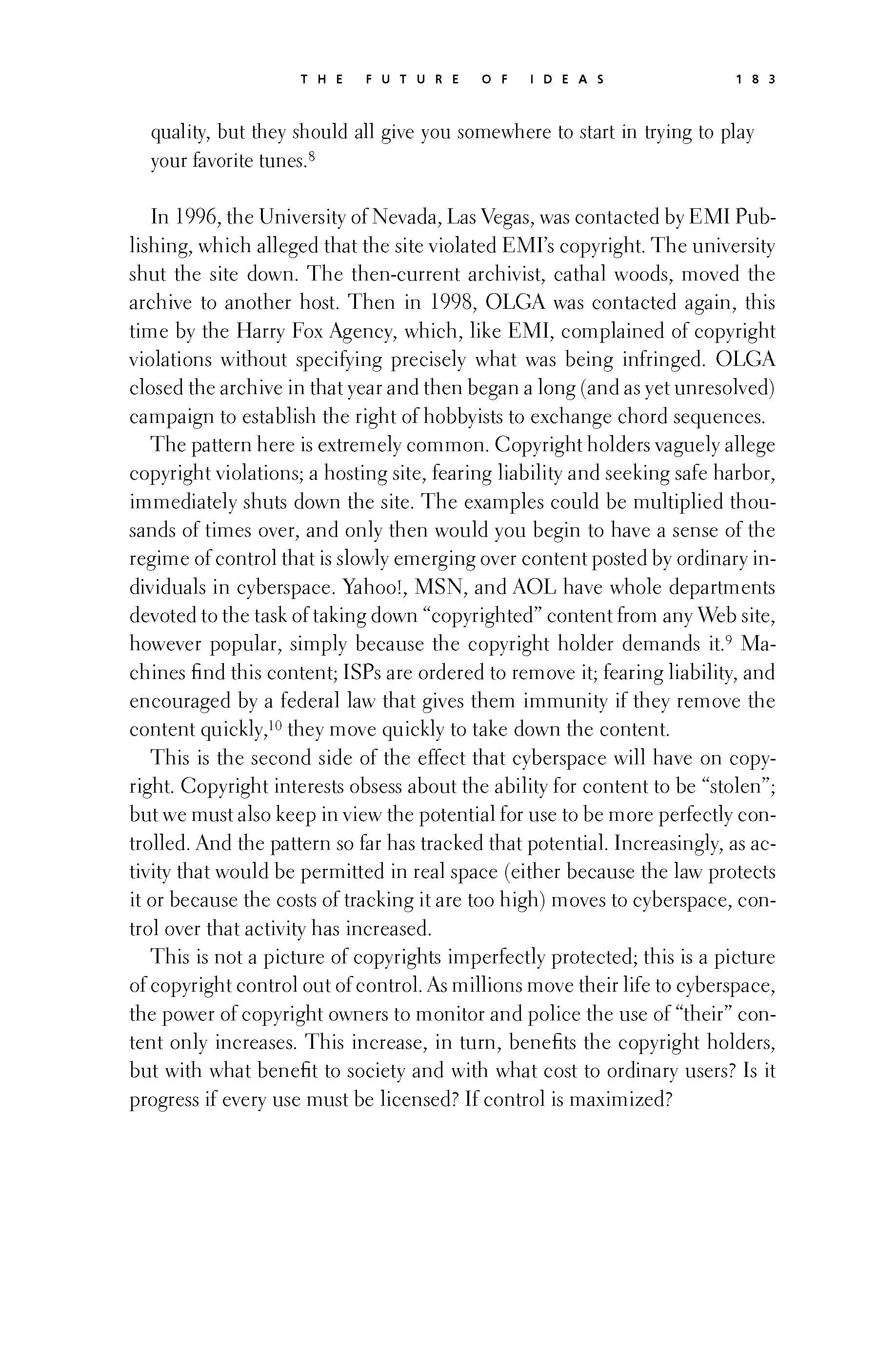 p182 _
-chap- _
toc-1 _
p183w _
toc-2 _
+chap+ _
p184
p182 _
-chap- _
toc-1 _
p183w _
toc-2 _
+chap+ _
p184
____ quality, but they should all give you somewhere to start in trying to play
____ your favorite tunes.[11-8]
In 1996, the University of Nevada, Las Vegas, was contacted by EMI Pub-
lishing, which alleged that the site violated EMI's copyright. The university
shut the site down. The then-current archivist, cathal woods, moved the
archive to another host. Then in 1998, OLGA was contacted again, this
time by the Harry Fox Agency, which, like EMI, complained of copyright
violations without specifying precisely what was being infringed. OLGA
closed the archive in that year and then began a long (and as yet unresolved)
campaign to establish the right of hobbyists to exchange chord sequences.
The pattern here is extremely common. Copyright holders vaguely allege
copyright violations; a hosting site, fearing liability and seeking safe harbor,
immediately shuts down the site. The examples could be multiplied thou-
sands of times over, and only then would you begin to have a sense of the
regime of control that is slowly emerging over content posted by ordinary in-
dividuals in cyberspace. Yahoo!, MSN, and AOL have whole departments
devoted to the task of taking down "copyrighted" content from any Web site,
however popular, simply because the copyright holder demands it.[11-9] Ma-
chines find this content; ISPs are ordered to remove it; fearing liability, and
encouraged by a federal law that gives them immunity if they remove the
content quickly,[11-10] they move quickly to take down the content.
This is the second side of the effect that cyberspace will have on copy-
right. Copyright interests obsess about the ability for content to be "stolen";
but we must also keep in view the potential for use to be more perfectly con-
trolled. And the pattern so far has tracked that potential. Increasingly, as ac-
tivity that would be permitted in real space (either because the law protects
it or because the costs of tracking it are too high) moves to cyberspace, con-
trol over that activity has increased.
This is not a picture of copyrights imperfectly protected; this is a picture
of copyright control out of control. As millions move their life to cyberspace,
the power of copyright owners to monitor and police the use of "their" con-
tent only increases. This increase, in turn, benefits the copyright holders,
but with what benefit to society and with what cost to ordinary users? Is it
progress if every use must be licensed? If control is maximized?
[[183]]
p182 _
-chap- _
toc-1 _
p183w _
toc-2 _
+chap+ _
p184